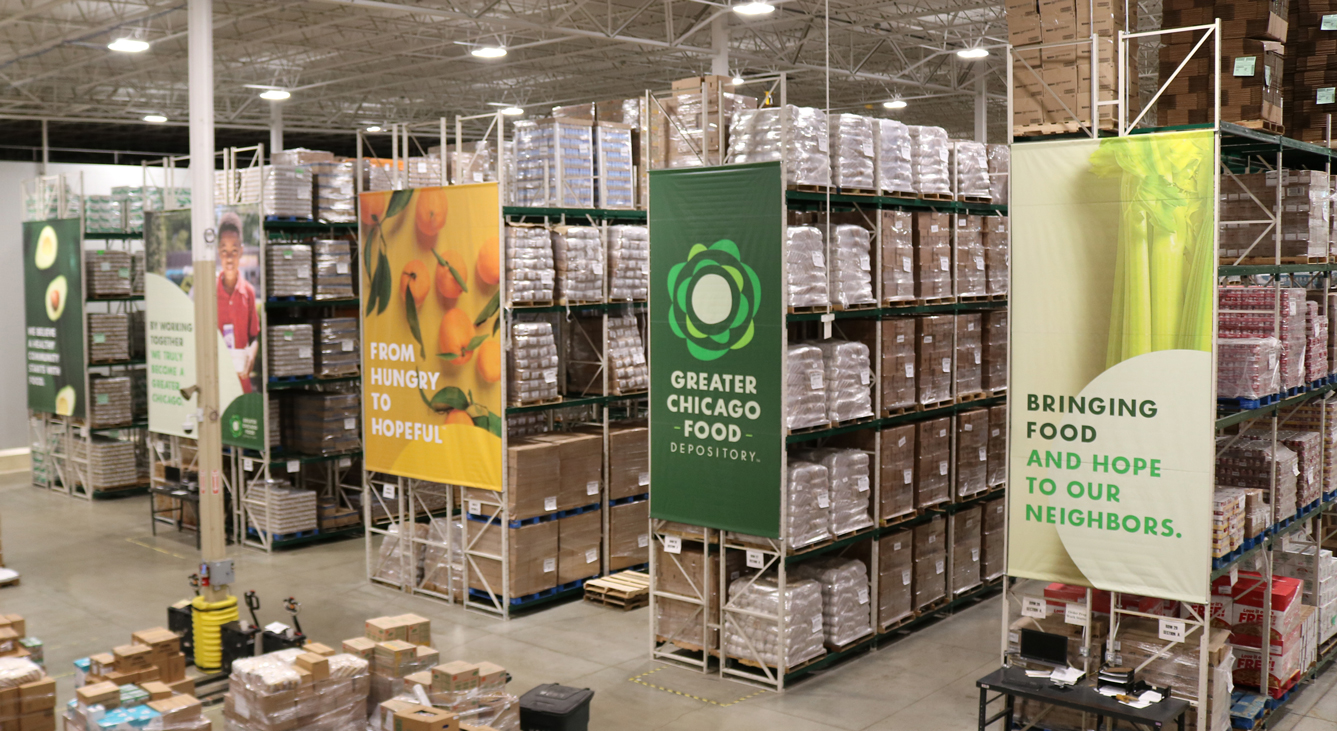
“This is unlike anything we’ve responded to in our history.” How the Chicago Food Depository is Addressing an Unprecedented Crisis
The economic fallout from the coronavirus have been multitudinous, and what comes next is unclear. What is clear is that 22 million people, so far, have filed for unemployment assistance around the country, and that residents of Chicago are not exempt from that fallout.
As a consequence, more families are relying on food and nutrition assistance than in recent memory. The Chicago Food Depository, a hub for a network of more than 700 food pantries, soup kitchens and shelters, has seen an unprecedented increase in demand. Their network of food pantries in Cook County alone have served an average of 40 percent more people in need than in January of this year. Suffice to say that right now, they’re facing a challenge that has completely caught them off-guard.
“This crisis is unlike anything we’ve responded to in our 41-year history,” Jim Conwell of the Chicago Food Depository said. “Many thousands of our neighbors could face food insecurity for the first time in their lives.”
The people the Food Depository and its partners serve are not the only ones facing a potential shortage. The Depository itself is paying close attention to its supply, given the unique disruptions brought about by the current crisis.
As people flocked to grocery stores in the early days of the crisis, supply at local vendors dropped precipitously, and donations from food manufacturers and other suppliers have dwindled as well. In turn, food pantries are running into obstacles merely purchasing food for distribution, let alone procure donations from the public. Under these conditions, the long-term viability of food pantry supplies are in an increasingly precarious position.
“We currently have an adequate supply of food,” Conwell said, “But we are concerned about the long-term supply of food available for food banks.”
At the same time, the community response has been overwhelming. In recent weeks, volunteers have packed more than 74,000 family food boxes to help supply distributions throughout the Food Depository’s network. And on April 8, the Food Depository announced a $1 million equity grant program to help its partners cover additional expenses while they respond to the rising need. Part of this is to keep pantries open, but it is also about providing a service that the Food Depository understands is a crucial element in fighting a global health crisis.
“Food is an essential need for our community,” Conwell said. “The strength, health and wellbeing of Chicago depends on access to nutritious food.”
In the meantime, the greatest needs are financial support and volunteers. Monetary donations give the Food Depository the greatest flexibility in meeting the exponentially growing need. They can use these funds to purchase food, keep trucks on the road, support their network of partners, and maintain a nimble response.
Their virtual food drive site My Food Drive provides an interactive way to fundraise with family, friends or coworkers during this time of social distancing.
And, perhaps most essentially, volunteers are needed to repack food in our warehouse. This is an essential service allowed during the stay-at-home order. At this time they are seeking volunteers between the ages of 18-60, and you can learn more on their website chicagosfoodbank.org




